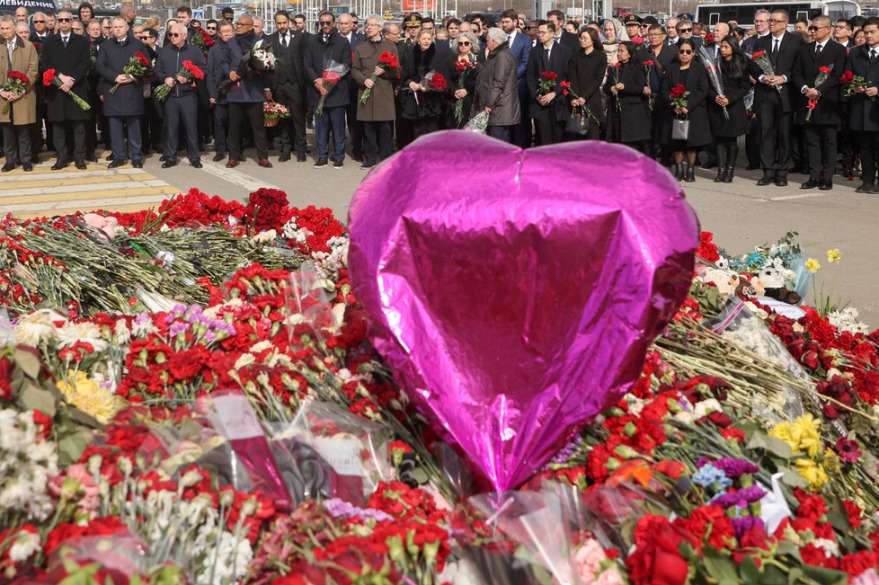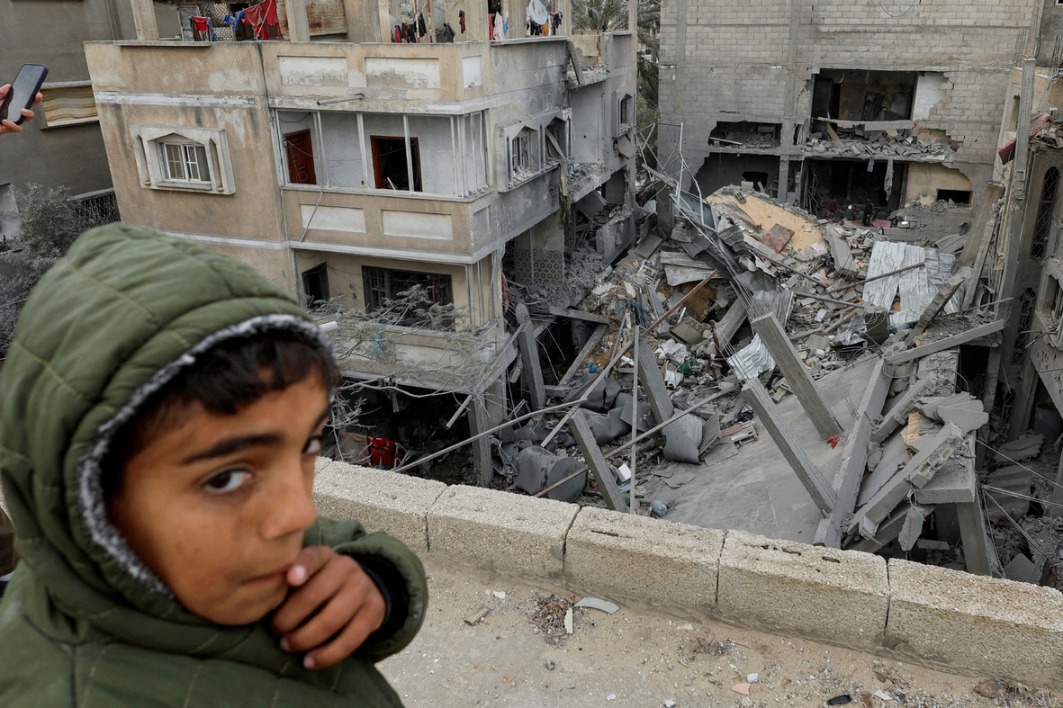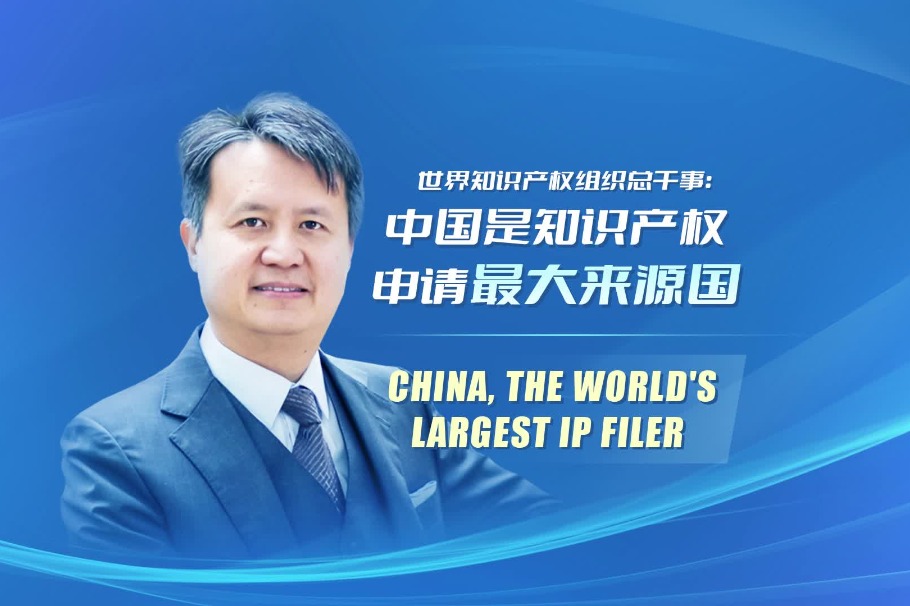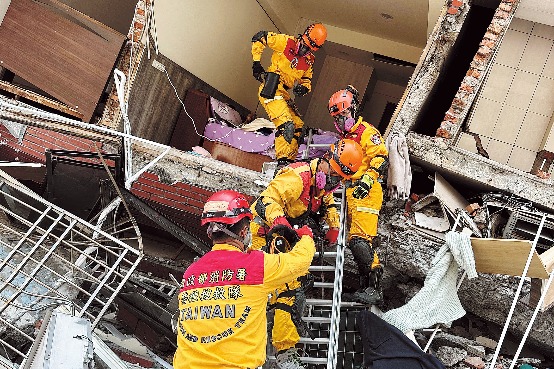Tribute to a climate champion of Europe
By ARVEA MARIENI | chinadaily.com.cn | Updated: 2022-08-26 21:01
EC's Petriccione, who passed away this week, will be remembered for his untiring environmental efforts
The world today is organized on the strength of infrastructure and production capacities that are the result of several centuries of accumulation and have very long life cycles.
Changing this system and transitioning to new energy sources, while maintaining as much as possible what fossil fuels have helped to build, requires method and planning, the operational model of the Chinese system.
"This is the vision behind the European Green Deal," Mauro Petriccione, the European Commission's top climate official, told this writer in the summer of 2019.
This week, the world received the sad news that Petriccione, who led the effort to fast-track the transformation of the European economies as the EC's director-general for climate action since 2018, passed away suddenly at the age of 65.
For long, Petriccione had been dedicated to climate actions.
In European countries, the only way to have a plan that survives political changes is if there is a very strong consensus among voters and civil society, which transcends the person in office at the time.
Petriccione realized the need of consensus for decarbonization, which means that the plan must be forged with the actors who will have to implement it. The more environmental catastrophes happen, the greater the awareness. A responsible policy means avoiding going to the edge of the abyss.
"Despite the growing signs of hope, there is no doubt that the road ahead is fraught with difficulties, as we are building something completely new," Petriccione said in 2019.
"Right now, there is broad public support for green policies. In the EU, I see that today the socialist, liberal and Christian-democratic parties have embraced greener policies than the Greens proposed a few years ago. This is a radical change," he said.
2018 can be considered a watershed for the EU for actions. Before that year, climate change and environmental protection were important goals, but only among other political priorities which were often deemed more important or more urgent. The situation has changed, because of the growing urgency and partly due to changing public opinion.
Fridays for Future, which is the first continent-wide mass political youth movement since the protests of the 1968 generation, has been impressive. They are more constructive, they have a vision of what they want to achieve. In Europe, they really pushed the politicians to act.
However, Petriccione said, "I wonder whether these young people fully realize what they have triggered; whether they are aware of the momentous changes that lie ahead." But we can not afford not to act.
What he was certain was that if we do not support our economies and our people during the transition, if the choice for our workers comes down to protecting the environment or losing their jobs, then we will not make it. And the Green Deal will only be a lost cause.
In the end, it will be the voters who will "make the difference between success and failure", he said.
When news of Petriccione's passing was confirmed on Aug 23, the remarks he made during my first, long conversation with him four years ago came back afresh.
The Italian-born, pragmatic, no-nonsense jurist had worked for the European Commission since 1987. Wherever he went, his reputation preceded him. As deputy director general of the EC's Directorate-General for Trade, he led the negotiations that led to the EU-Canada Comprehensive Economic and Trade Agreement, or CETA, and also the Economic Partnership Agreement with Japan, of which he was very proud.
"The EU is integrating climate objectives into international trade agreement", he said to the writer commenting on the Brexit deal (with London) and the CAI -- Comprehensive Agreement in principle on Investment – with Beijing, that were announced in December 2021.
He believed that the alignment on climate and environment could become a convergence tool to ensure the "level playing field" necessary in Brussels and Beijing.
He will be remembered not only for the results he achieved, but also for the network of friendly and trusting relations he had managed to build during various negotiations. This was a method he felt it was essential to preserve in when he took up a new climate-related post, fraught with difficulties and involving engagement with complex partners.
He followed a similar approach in negotiations with China from the very beginning of his new assignment. Petriccione was open and deeply curious. Despite initial difficulties in understanding the rules of his new friends and their system, he had internalized the underlying mechanisms and was able to create trust, speak clearly and be heard within a few months.
For Petriccione, China was an inevitable partner. Relations with Beijing on climate and environment have become solid, he told me recently.
But more needs to be done globally to adequately respond to the urgency and speed of climate change.
Petriccione believed it was time to move to a "transformative" approach within the global community, with Beijing as well as with other international partners.
Unlike many, he had the intellectual means to imagine how this transformative framework could be designed. The toolbox came to him from his education, intelligence and experience.
Before 2018, his career had dealt with everything but climate, ranging from trade, defence, standards, investment and competition to agribusiness, WTO, dispute settlement, relations with EU member states, and Asia and Latin America ties.
A stranger to the clique of the usual faces on the climate negotiations arena, Petriccione embodied a fresh perspective on the process of global work streams, brought in new concepts and learnt the jargon fast.
His experience allowed him to approach thorny issues that had remained unsolved for decades, mostly for a lack of political will, from angles traditionally not associated with environmental negotiations, even though they were intrinsically relevant to the process of change.
It is therefore not surprising that he was appointed to the EC's top climate post when the commission decided it was time to get serious about the Paris climate accord.
It is nowadays commonly acknowledged, and Petriccione agreed, that the lack of multilateral alignment on energy, industrial and trade policies had led to the repeated failures of various international climate change conferences right up to the COP25 event in Madrid, Spain, in December 2019.
The turning point that came during the COP26 summit at Glasgow, United Kingdom, in 2021, and the recent landmark US climate legislation are due to a fundamental shift in perspective that is now accepted, though not yet realized.
The urgency of the threat is pushing the global community to action, and protection of climate and natural systems have now become the focus of government policy and action.
The EC climate action chief believed "that the Paris Agreement, even with all its flaws, gave rise to an original and potentially very effective mechanism of process obligations, which leave room for national choices of substance, but once those choices are made, give them a degree of de facto obligation".
Petriccione could imagine, he told me once, seeing the United Nations Climate Change Secretariat in Bonn, Germany, acquiring a stronger role.
As he often emphasized, the global challenge of climate change requires policies both to reduce the carbon intensity of the economy and to enhance natural carbon sinks, with initiatives covering energy, industry, transport and agriculture sectors, along with relevant fiscal policies, including taxation and incentive systems.
In short, the climate change challenge is a matter of industrial, economic and social policies.
One last point. Petriccione could have retired earlier, but he stayed on at the request of the political leaders. It is due to a spirit of service, but also because he had a mission — to save the planet's climate.
I hope that his legacy will be carried forward in a fitting manner.
The author is a partner and board member of management advisory company Brainscapital and Technical Director for the Regenerative Society Foundation. The views do not necessarily reflect those of China Daily.
























